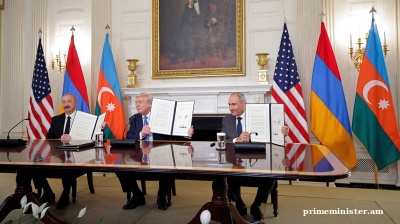Hungary's ruling Fidesz party has pushed through legislation to scrap campaign spending limits, paving the way for what analysts expect will be the country's most expensive election campaign to date.
The move, passed by Parliament this week, applies from the 2026 general election onwards and dismantles key safeguards meant to curb excessive political spending.
Under the new rules, state campaign subsidies for individual candidates will remain in place, as will the obligation for parties to disclose spending retrospectively. But with no legal ceiling on expenditure, those declarations are rendered largely symbolic. As one opposition MP put it, "If there's no rule to break, there's no punishment either."
The amendment, passed by the ruling Fidesz-KDNP coalition on Tuesday with 133 votes in favour and 46 against, eliminates the existing limit of HUF5mn (€12,380) per candidate. The cap, introduced in 2013, was intended to curb runaway campaign spending.
Opposition parties and civil society groups, however, denounced the move as a backslide for democratic norms. Anti-corruption watchdog K-Monitor warned it would allow politically connected businesspeople to funnel unlimited private money into the governing party's campaigns.
Analysts see a strategic motivation behind the timing. "The government knows it would face mounting criticism for overspending in 2026, especially with the rise of the Tisza Party," said a Budapest-based political consultant, "By removing the cap, Fidesz is simply legalising its intention to outspend the opposition many times over."
Critics say the overhaul formalises practices Fidesz has long deployed through a network of government-aligned NGOs and communications platforms recipients of generous public funding. These groups have run aggressive campaigns parallel to Fidesz's official communication whilst remaining formally unaccountable under campaign finance laws.
Fidesz has argued that the changes are necessary to reflect modern campaigning realities, particularly the growing dominance of social media. "Most political communication now happens outside the traditional campaign period," government spokespeople say. Indeed, the State Audit Office already ruled in 2020 that social media ads outside the official campaign window do not count towards spending limits, a decision that critics say effectively gutted the rules even before this formal repeal.
Gergely Gulyas, the head of the Prime Minister's Office, argued in his weekly press briefing on Thursday that no spending limits had previously applied to campaigns for municipal or European Parliament elections, and pointed out that advertising on social media platforms is difficult to regulate.
Despite Fidesz finishing 2023 with a HUF400mn loss, the party still benefits from the largest public party funding and the most extensive support network. That includes recently increased parliamentary group funding and state-financed communications projects, such as HUF500mn campaign films.
Political Capital, a Budapest-based think-tank, estimates that political and social advertisements on Facebook and Instagram reached nearly HUF1.2bn by mid-2025, 82% of which was paid by actors linked to the ruling party. In comparison, Tisza Party's spending came to just HUF28mn. Remarkably, Fidesz's communication spending during a non-election period rivalled that of parties in Poland's presidential race.
Smaller parties may also benefit, at least nominally, since they can no longer be penalised for overspending. But observers say the main effect will be to further entrench Fidesz's advantage, not least because foreign funding remains prohibited, giving the ruling party ample opportunity to weaponise accusations of external interference against rivals.
The reform could also fuel a resurgence of so-called "fake parties" that emerge before elections, tap into mysterious funding streams, and disappear after siphoning votes from the opposition.
Public sentiment in Hungary has deteriorated noticeably over the past year. The share of those saying the country is moving in the right direction dropped from 34% in June 2024 to 23% in June 2025. Meanwhile, the proportion of those who believe Hungary is headed in the wrong direction reached a new peak of 70% in the latest measurement.
The shift in sentiment is reflected in the new polls. According to a new poll by Median, the Tisza Party has surged ahead of Fidesz by 15pp amongst decided voters, marking a dramatic reversal since the 2022 election, when Viktor Orbán's ruling party defeated the united opposition by a similar margin. In the total adult population, Tisza now leads Fidesz by 10pp, whilst amongst decided voters it leads 50-35%.
Support for Peter Magyar's party is strongest amongst younger voters: 58% of those under 40 would vote for Tisza if elections were held now. The party also leads in the 40-49 age group, whilst Fidesz retains a lead only amongst voters over 50.
Education level is another dividing factor: nearly half of those with a high school diploma or university degree support Tisza, while amongst voters with only a primary education, nearly half of them back Fidesz, with just 17% supporting Tisza.
Urban areas, especially Budapest, are strongholds for Tisza, whereas Fidesz holds only a slim lead in small rural settlements.
News

“Yurt-shaped” stadium in Kyrgyzstan to be largest sports venue in Central Asia
Small country also building ski resort, rail and hydropower megaprojects.

Wildfires close Dardanelles gateway to Black Sea
Strait closed as Turkey’s heatwave battle with raging wildfires fanned by strong winds continues.

Armenia, Azerbaijan sign US-brokered peace deal, agree to open ‘Trump Route’ transit corridor
Agreement commits the two countries to formally end hostilities and reopen transport links severed during decades of conflict over the disputed Nagorno-Karabakh region.

Mixed messages on Russian oil supply to India
India’s Rosneft-backed Nayara Energy is struggling to secure ships to transport fuel after being placed under European Union sanctions.




